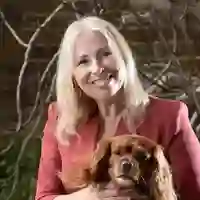
Time to end live exports
On 7th November the UK made history when, in the King’s Speech, it was announced that the Government would introduce the Animal Welfare Bill.
When our Patron Janet Fookes MP - now Conservative peer Baroness Fookes - asked then-Agriculture Minister Peggy Fenner MP in 1972 if Great Britain will ban the export of live animals for slaughter, nobody could have anticipated it would take more than 50 years for such a policy to make the statute books.
This is largely because while the UK was a member of the EU, it was impossible to set our own regulations around the export of live animals. Successive Dedra ministers before, during and after Brexit have promoted ending live exports as a key bonus to leaving the EU. It is therefore critical that we seize the opportunity to set our own world leading standards in animal welfare, and keep the promises made to the public and MPs.
Indeed, for more than five decades MPs, peers, campaigners, charities, and NGOs have worked tirelessly in calling for the cruel live export trade to be outlawed. Animals like sheep and calves have historically been exported in their tens of thousands from Great Britain, often enduring long journeys before they even approach their export port. Overcrowded journeys mean that some animals cannot lie down, while those who do may be injured or trampled to death. They can be in transit for days, suffering extremes of temperature and often without sufficient food, water, or rest.
And once they reach their destination, their misery is far from over. From destinations countries like Bulgaria, Hungary and Spain, animals can be re-exported to other countries. We know, for instance, that calves exported to Spain for beef production have been re-exported on to countries such as Lebanon and Turkey, where non-stun slaughter is the norm. Animals frequently end up in countries with far poorer welfare standards than our own, enduring practices which are illegal in the UK such as sow stalls and veal crates. Ultimately, once animals leave our shores, we have no control over how they are reared or slaughtered.

Following Britain’s exit from the EU, animals from the UK now need to be checked at a Border Inspection Post (BIP), however no suitable posts have been set up at Calais, Dunkirk, or any other ferry port. We should therefore be under no illusion; the only reason why live exports are not currently taking place is due to insufficient border controls. Without legislation like the Animal Welfare (Livestock Exports) Bill, this cruel trade can and will resume with the implementation of new border posts. This is why we are urging MPs across all parties to show up on 18th December and voice their support at the Second Reading in the House of Commons.
We know that animal welfare is an important priority for voters – perhaps demonstrated most clearly by the overwhelming support for the 2019 Conservative Manifesto which unashamedly placed animals and the environment at the forefront of the policy agenda. It prompted almost 14 million people to vote Conservative, the most significant electoral win for any Party in decades. This is hardly surprising, considering time and time again the British public show their support for higher animal welfare standards. For example, an overwhelming 98 per cent of people have stated that protecting the welfare of farmed animals is important to them.
As MPs gather to debate what could be one of the most historic Bills of this Conservative administration, we hope to see a strong display of unwavering support for ending Great Britain’s role in the cruel live export trade for fattening and slaughter.

Lorraine Platt is the co-founder of the Conservative Animal Welfare Foundation












